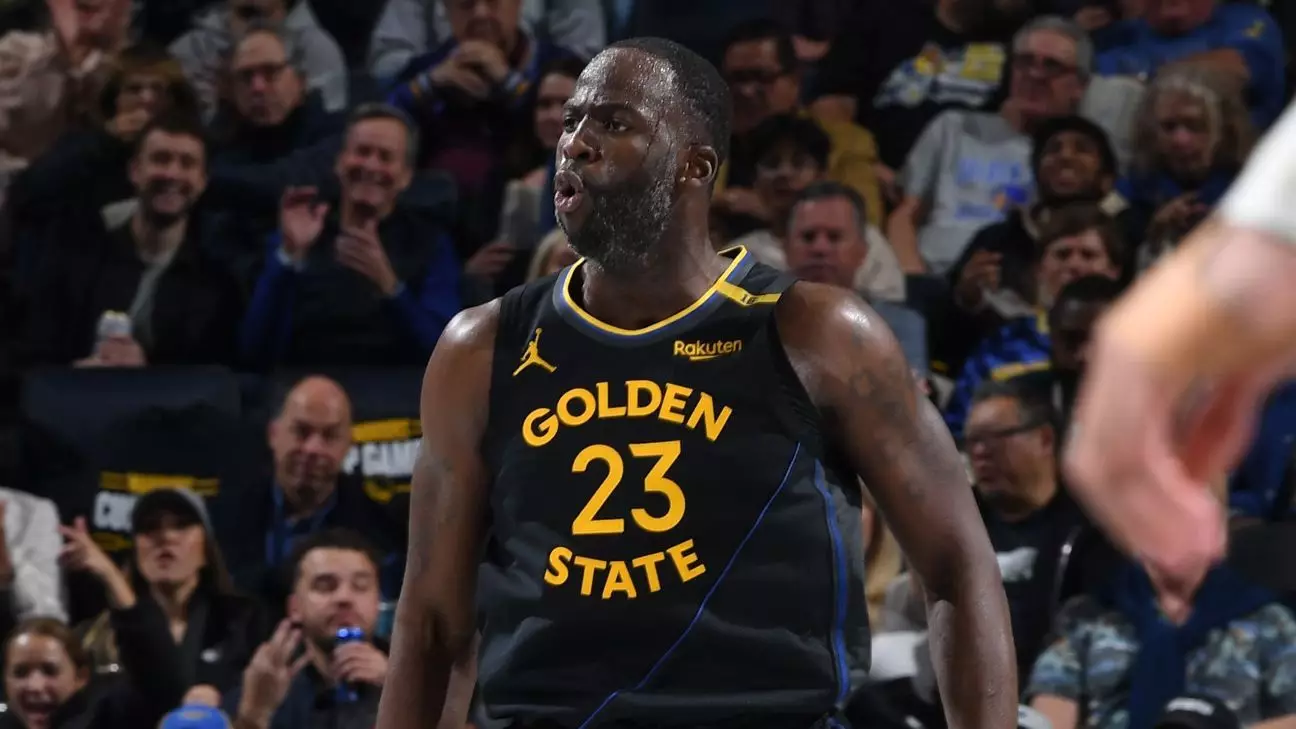The dynamics of professional sports can be intricate, particularly when they intersect with personal conflicts within a team. Draymond Green, the stalwart forward for the Golden State Warriors, recently opened up about a pivotal moment in his career—the altercation with former teammate Jordan Poole. An incident that reverberated through the Warriors’ locker room, Green’s actions three years ago now serve as a lens through which we can evaluate personal growth, accountability, and the complexities of team relationships.
In October 2022, a shocking video surfaced depicting a physical confrontation between Green and Poole during a preseason practice. The video captured an exchange escalating from verbal jabs to a swift and serious punch that left Poole reeling. This incident not only tarnished Green’s reputation but also fractured the camaraderie within the Warriors, a team that had just celebrated an NBA championship. Green’s subsequent apology to Poole and his family hinted at the weight of regret he carried, but the ramifications of that moment went deeper than mere personal apologies.
Fast forward to early 2023, when Poole reflected on his time with the Warriors during a return game as a member of the Washington Wizards. His comments, expressing fondness for “most of those guys over there,” reignited public interest in the incident and exposed lingering feelings. In an interview that followed, Green made his own attempt to clarify the situation, admitting to his wrongdoing yet also expressing discomfort at what he perceived as Poole seeking sympathy.
Green’s struggle to reconcile his own behavior with the consequences of it leads to a more profound discourse on workplace conflicts. In his recent comments, he acknowledged that while he was undeniably at fault—”I shouldn’t have punched him”—the verbal provocation from Poole was also undeniable. Here, Green’s sense of duality shines through: recognizing his guilt while also reflecting on the complexities of aggressive interactions. This balancing act between accountability and defense creates a complicated narrative that often exists in similar situations across all professions.
Such conflicts often reveal the underlying tensions that can influence team dynamics. Green’s admission that “the reality is, the answer is probably somewhere in the middle” underscores the need for a nuanced understanding of human interactions. It is vital for individuals in high-stakes environments to not only acknowledge their mistakes but to also analyze the factors that lead to such eruptions of emotion. The focus shouldn’t solely remain on the fallout but should extend to the lessons learned and the avenues for improvement.
After the altercation in 2022, Green encountered further challenges during the following season. This included suspensions related to different confrontations on the court, illustrating a pattern that could have jeopardized his career. Yet, instead of allowing these incidents to define him, Green sought help and underwent counseling, demonstrating a commitment to personal growth. His acknowledgment of the need for change is a crucial step in any redemption story.
His experience highlights the importance of seeking professional guidance following conflicts. By opening up to therapists and a sports psychologist, Green did not simply address the symptoms of his aggression, but the root causes. The transformative process enabled him to emerge a more reflective and conscientious player, as he stated, “I want people to say… look where it went from there.” This journey emphasizes that mistakes don’t have to lead to a downward spiral; instead, they can foster development and improvement.
As Green continues his basketball career, the ramifications of past actions linger, yet they also serve as stepping stones to a more mature version of himself. With the initial spark of conflict fading into history, Green appears determined to redefine how he is perceived—both by fans and by his teammates. His recent performance metrics indicate an improvement in his conduct on the court, contrasting with previous seasons where he received multiple technical fouls.
Green’s recent statements reveal a desire not only to expiate past sins but also to leave a legacy rooted in accountability. His narrative serves as a reminder that, in professional sports or any work environment, understanding the multifaceted nature of conflicts can lead to resolution and growth. In the end, Green embodies a powerful message: while we all falter, it’s how we rise and learn from these experiences that truly defines us.


Leave a Reply